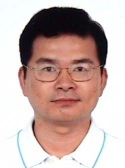Systems Seminar - ECE
Supervisory Control of Large-Scale Discrete-Event Systems for Optimal Performance
Add to Google Calendar

The Ramadge-Wonham (RW) supervisory control paradigm has found potential applications in many systems such as manufacturing systems, transportation systems, communication networks and software systems. One challenge of RW supervisor synthesis is to achieve nonblockingness in a target system, i.e., to ensure the target system to have a possible trajectory to reach a final state regardless of its current state. Recently proposed distributed synthesis approaches have brought a hope to overcome this challenge, which utilizes either deterministic or nondeterministic automata to model a target system, and apply different model abstraction techniques to effectively avoid the state explosion phenomenon during synthesis. When applying similar techniques in performance oriented synthesis, which not only ensures behavioral correctness including nonblockingness, but also performance optimality, a new computational challenge appears due to our aim to find a few "good" trajectories among a vast number of feasible trajectories according to some given performance metrics such as minimum makespan or maximum throughput. It turns out that performance optimality based on additive metrics can be relatively easy to handle, but performance optimality based on concurrency-related metrics such as makespan is extremely difficult to achieve because the principle of optimality usually does not hold, making it hard for a designer to use local design to ensure globally good performance. I will briefly describe our current ongoing effort on distributed and incremental time-weighted syntheses to ensure good makespan of a given set of tasks within a large scale discrete-event system, which shows the feasibility of applying a distributed or incremental strategy in performance oriented supervisory control.
Dr Rong Su obtained his BE degree from University of Science and Technology of China in 1997, and MASc and PhD degrees from University of Toronto in 2000 and 2004 respectively. He joined Nanyang Technological University in 2010. His research interests include supervisory control, model-based fault diagnosis, operational planning and scheduling in complex systems with applications in power management, green building and intelligent transportation systems. He has more than 100 journal and conference papers and book chapters on the relevant subjects, and 2 patents. Dr Su is the program chair of ICARCVཛྷ, and invited session chair of ICCAཛྷ and CASE'16, and is an associate editor for Journal of Control and Decision (Taylor & Francis Group), and Transactions of Institute of Measurement and Control. He is a senior member of IEEE, and the Chair of IEEE CSS Technical Committee on Smart Cities.
 MENU
MENU 
